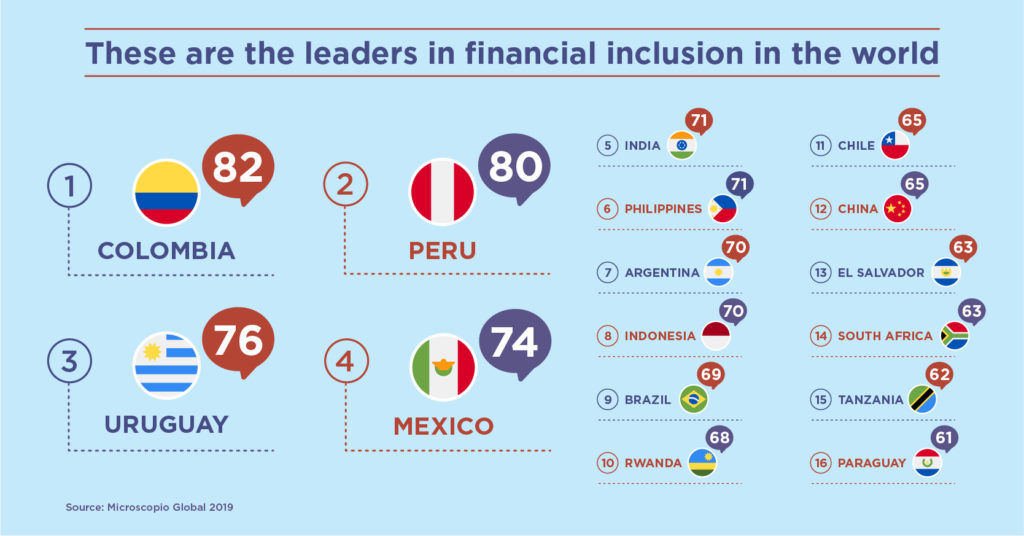Global Microscope 2019: What Can Decision Makers Learn From It?

At the beginning of November, the 12th edition of the Global Microscope on Financial Inclusion was released at Foromic, IDB Group's the landmark event focusing on innovation for inclusion. The Global Microscope analyses practices used by governments and regulators around the world to increase financial inclusion, with a particular emphasis on the adoption of digital financial services.
The Microscope was originally developed for countries in the Latin American and the Caribbean region in 2007 and was expanded into a global study in 2009 covering now 55 countries. The Microscope has rapidly become mandatory reading material for those interested in understanding the evolving frontier of innovation in financial services across the globe.
The Microscope is much more than just a yearly update of information. It aims to reflect the increasing complexities of the financial inclusion field. In its early days, financial inclusion and the Microscope itself focused on micro-finance institutions’ achievements. Now it covers a much broader set of elements that together make a conducive business environment for financial inclusion in the 21st century.
For instance, the latest edition of the Microscope includes factors such as incentives for digitization, cyber-security and access to the Internet. Also, this year the study includes–for the first time–eleven indicators focused on evaluating what governments are doing to engage specifically with on the gender gap in access to financial services.
However, the richness of the Microscope goes beyond the rankings. It is a tool that provides unique, detailed and up-to-date information on financial inclusion in many countries around the world. It is not about who is first and who is second, but rather about what we can learn from each other.
Each of the 55 countries in the study has a summary page with highlights, and a corresponding tab in an extended excel worksheet which provides the reader with a comprehensive analysis. The summary report can be found here and the extended and detailed excel worksheet is here.

We can learn so much from studying the different initiatives implemented by this diverse group. Let’s say we pick an example from Africa; Rwanda has established an Information Society Authority that has improved data and cyber-security enormously. This experience could be very vital for regulators in Latin American and the Caribbean.
We invite you to use this tool extensively to generate synergies in your work, and ask that you provide us with feedback so that we can continue to invest in improvements.■
LIKE WHAT YOU JUST READ?
Subscribe to our mailing list to stay informed on the latest IDB Invest news, blog posts, upcoming events, and to learn more about specific areas of interest.
Subscribe



